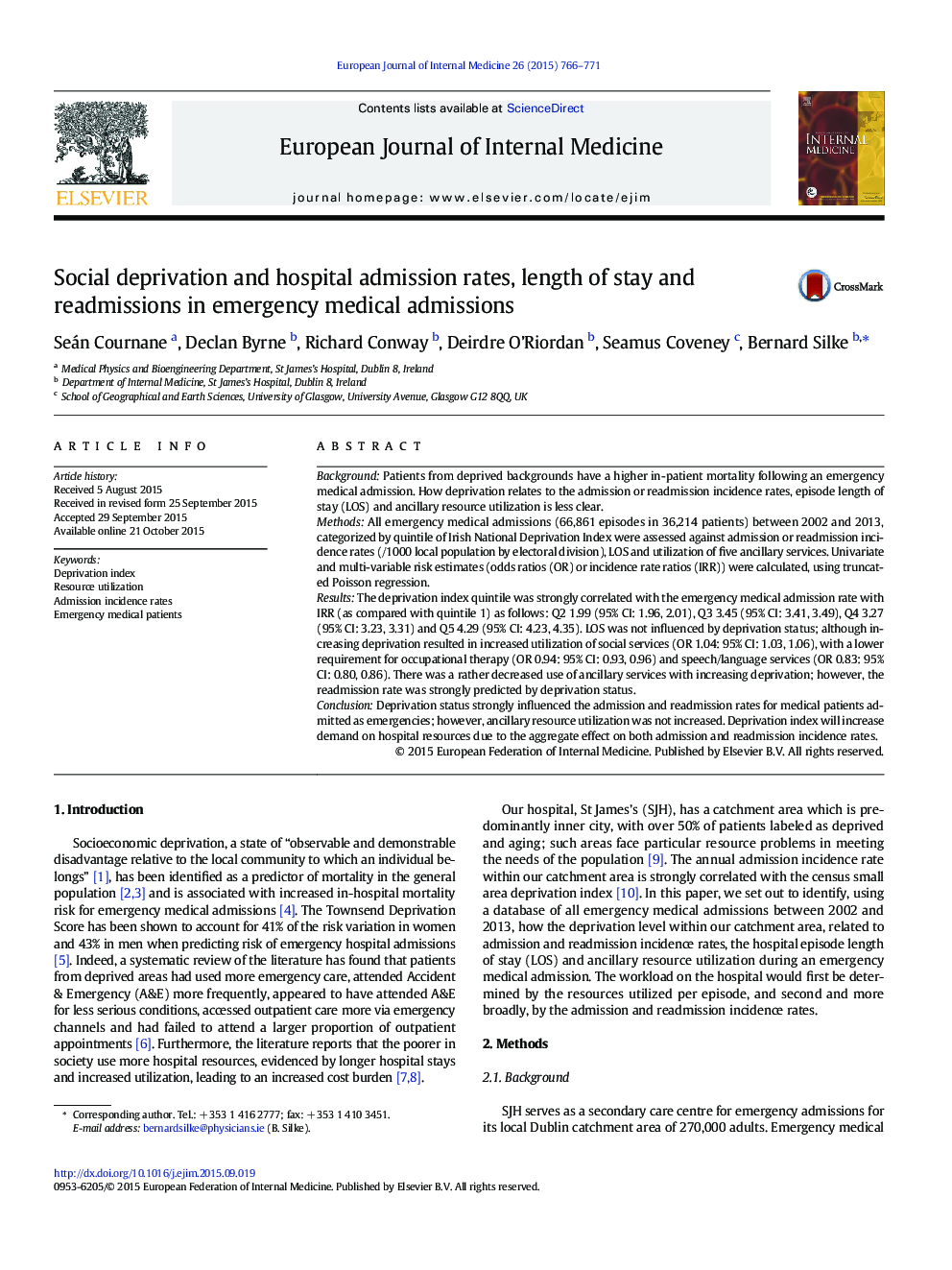| کد مقاله | کد نشریه | سال انتشار | مقاله انگلیسی | نسخه تمام متن |
|---|---|---|---|---|
| 6151612 | 1596540 | 2015 | 6 صفحه PDF | دانلود رایگان |
- We evaluated deprivation as related to hospital resource utilization.
- Deprivation status was not related to increased length of stay per episode.
- Deprived patients did not use more ancillary services.
- Deprived areas showed increased readmission and admissions rates.
- Deprivation index will increase demand on overall hospital resources.
BackgroundPatients from deprived backgrounds have a higher in-patient mortality following an emergency medical admission. How deprivation relates to the admission or readmission incidence rates, episode length of stay (LOS) and ancillary resource utilization is less clear.MethodsAll emergency medical admissions (66,861 episodes in 36,214 patients) between 2002 and 2013, categorized by quintile of Irish National Deprivation Index were assessed against admission or readmission incidence rates (/1000 local population by electoral division), LOS and utilization of five ancillary services. Univariate and multi-variable risk estimates (odds ratios (OR) or incidence rate ratios (IRR)) were calculated, using truncated Poisson regression.ResultsThe deprivation index quintile was strongly correlated with the emergency medical admission rate with IRR (as compared with quintile 1) as follows: Q2 1.99 (95% CI: 1.96, 2.01), Q3 3.45 (95% CI: 3.41, 3.49), Q4 3.27 (95% CI: 3.23, 3.31) and Q5 4.29 (95% CI: 4.23, 4.35). LOS was not influenced by deprivation status; although increasing deprivation resulted in increased utilization of social services (OR 1.04: 95% CI: 1.03, 1.06), with a lower requirement for occupational therapy (OR 0.94: 95% CI: 0.93, 0.96) and speech/language services (OR 0.83: 95% CI: 0.80, 0.86). There was a rather decreased use of ancillary services with increasing deprivation; however, the readmission rate was strongly predicted by deprivation status.ConclusionDeprivation status strongly influenced the admission and readmission rates for medical patients admitted as emergencies; however, ancillary resource utilization was not increased. Deprivation index will increase demand on hospital resources due to the aggregate effect on both admission and readmission incidence rates.
Journal: European Journal of Internal Medicine - Volume 26, Issue 10, December 2015, Pages 766-771
